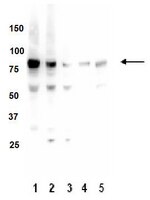Evolution of the eye transcriptome under constant darkness in Sinocyclocheilus cavefish.
Meng, F; Braasch, I; Phillips, JB; Lin, X; Titus, T; Zhang, C; Postlethwait, JH
Molecular biology and evolution
30
1527-43
2013
概要を表示する
In adaptating to perpetual darkness, cave species gradually lose eyes and body pigmentation and evolve alternatives for exploring their environments. Although troglodyte features evolved independently many times in cavefish, we do not yet know whether independent evolution of these characters involves common genetic mechanisms. Surface-dwelling and many cave-dwelling species make the freshwater teleost genus Sinocyclocheilus an excellent model for studying the evolution of adaptations to life in constant darkness. We compared the mature retinal histology of surface and cave species in Sinocyclocheilus and found that adult cavefish showed a reduction in the number and length of photoreceptor cells. To identify genes and genetic pathways that evolved in constant darkness, we used RNA-seq to compare eyes of surface and cave species. De novo transcriptome assemblies were developed for both species, and contigs were annotated with gene ontology. Results from cave-dwelling Sinocyclocheilus revealed reduced transcription of phototransduction and other genes important for retinal function. In contrast to the blind Mexican tetra cavefish Astyanax mexicanus, our results on morphologies and gene expression suggest that evolved retinal reduction in cave-dwelling Sinocyclocheilus occurs in a lens-independent fashion by the reduced proliferation and downregulation of transcriptional factors shown to have direct roles in retinal development and maintenance, including cone-rod homeobox (crx) and Wnt pathway members. These results show that the independent evolution of retinal degeneration in cavefish can occur by different developmental genetic mechanisms. | Immunohistochemistry | 23612715
 |
PKC-beta controls I kappa B kinase lipid raft recruitment and activation in response to BCR signaling.
Su, Thomas T, et al.
Nat. Immunol., 3: 780-6 (2002)
2002
概要を表示する
NF-kappa B signaling is required for the maintenance of normal B lymphocytes, whereas dysregulated NF-kappa B activation contributes to B cell lymphomas. The events that regulate NF-kappa B signaling in B lymphocytes are poorly defined. Here, we demonstrate that PKC-beta is specifically required for B cell receptor (BCR)-mediated NF-kappa B activation. B cells from protein kinase C-beta (PKC-beta)-deficient mice failed to recruit the I kappa B kinase (IKK) complex into lipid rafts, activate IKK, degrade I kappa B or up-regulate NF-kappa B-dependent survival signals. Inhibition of PKC-beta promoted cell death in B lymphomas characterized by exaggerated NF-kappa B activity. Together, these data define an essential role for PKC-beta in BCR survival signaling and highlight PKC-beta as a key therapeutic target for B-lineage malignancies. | | 12118249
 |











